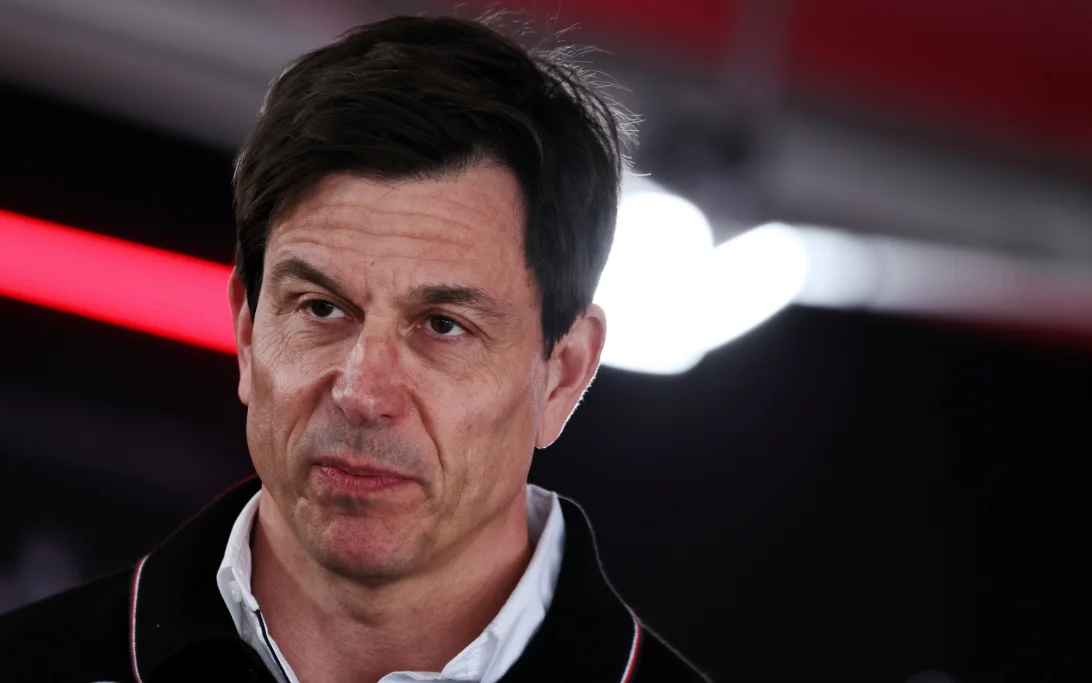Formula 1 has always been a breeding ground for speculation, drama, and unprecedented talent. In recent years, few topics have ignited discussion quite like the future of Max Verstappen and the potential of him joining Mercedes. Toto Wolff, Team Principal of the Mercedes-AMG Petronas Formula One Team, recently shared his thoughts on this tantalizing subject, igniting intrigue about the future direction of both Verstappen and Mercedes.
To fully understand the implications of a potential Verstappen move to Mercedes, it’s essential to first examine the current landscape of Formula 1. As of 2023, Red Bull Racing has emerged as a dominant force, largely due to Verstappen’s exceptional driving and the team’s successful engineering innovations. Verstappen’s partnership with Red Bull, which has allowed him to showcase his talent, has made him one of the most formidable drivers on the grid.

Conversely, Mercedes has been the benchmark for excellence in Formula 1 over the past decade. With seven consecutive Constructors’ Championships under their belt, the team has set a standard that many aspire to reach. However, the recent seasons have seen increasing competition, with teams like Ferrari and McLaren making substantial progress.
Wolff’s comments come at a time when Mercedes is exploring avenues to rebound from a challenging season. The future of both the team and the sport rests on their ability to lure and retain top talent, making discussions about drivers such as Verstappen crucial.
Toto Wolff has been open about his admiration for Verstappen. He remarked that Verstappen possesses a unique competitive spirit and an elite skill set that few others can claim. Wolff suggested that Verstappen’s tenacity and relentless pursuit of excellence resonate deeply with Mercedes’ own values. This admiration has led to speculation about the possibility of Verstappen donning the silver arrows in the future.
Wolff’s candid remarks have led to discussions on the strategic implications of such a move. If Verstappen were to join Mercedes, it could significantly alter the pecking order within the sport. Such a transition would not only reinforce Mercedes’ championship ambitions but also create intense rivalries within the team itself, especially concerning their current star driver, Lewis Hamilton.
The prospect of Verstappen joining Mercedes invites a multitude of questions regarding team dynamics. Historically, Mercedes has nurtured a strong driver relationship model—one that allows for constructive competition while prioritizing team success. However, with two of the most competitive drivers in the sport sharing the same garage, the balance of collaboration versus rivalry could be put to the test.
The relationship between Hamilton and Verstappen is particularly noteworthy. The duo has engaged in a fierce rivalry over the past few seasons, an element that has captivated fans and added drama to races. The prospect of them being teammates could either spark unprecedented harmony or lead to clashes that define seasons. Wolff’s leadership would play a pivotal role in maintaining that balance.
If Verstappen were to make the transition to Mercedes, the implications would ripple throughout the driver market. Such a move would leave a void at Red Bull, prompting them to seek a replacement capable of matching Verstappen’s performance. This could create opportunities for emerging talents in the sport, such as Lando Norris or George Russell, to step into high-profile roles.
The movement in the driver market could also prompt shifts at other teams, leading to a reshuffling that could redefine line-ups across Formula 1. The possibility of such a domino effect highlights the interconnected nature of the sport’s driver market, where one move can trigger a series of changes.
As the sport approaches a new era with changes in regulations and increased emphasis on sustainable practices, the future of Formula 1 remains dynamic and uncertain. Teams are investing heavily in technology, driver talent, and innovative strategies to stay competitive. A potential move of Verstappen to Mercedes could serve as a catalyst for transformative changes within the paddock.
Moreover, the evolving nature of fan engagement and media influence has elevated the importance of driver personalities in shaping team identities. Verstappen’s move could attract new audiences to the sport, further widening the commercial opportunities for both teams and Formula 1 as a whole.
The idea of Max Verstappen joining Mercedes poses an intriguing scenario for the future of Formula 1. While Wolff’s insights provide a window into the potential dynamics that could unfold, the sheer unpredictability of the sport adds layers of complexity to these discussions. Wolff’s acknowledgment of Verstappen’s talent signifies the high stakes involved in future driver negotiations, underscoring how shift can reshape the very foundation of Formula 1.
As fans, stakeholders, and analysts watch the developments in the driver market unfold, the prospect of thrilling new narratives and rivalries captures the essence of Formula 1: a relentless pursuit of speed and glory, driven by the passion and possibility of the extraordinary. The world of motorsport is ripe with speculation, and the next chapter—whether it involves Verstappen and Mercedes or not—promises to be nothing short of exhilarating.
